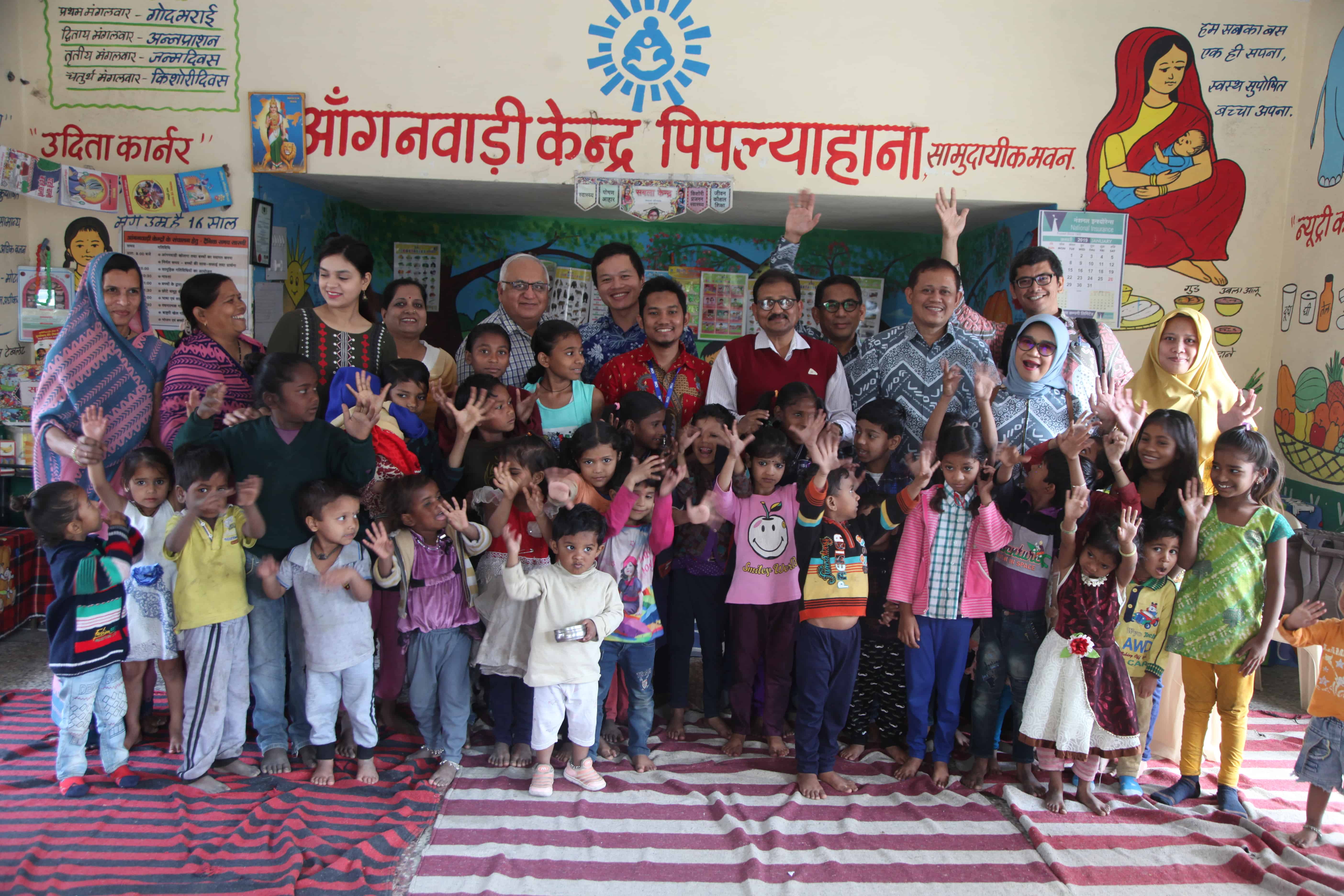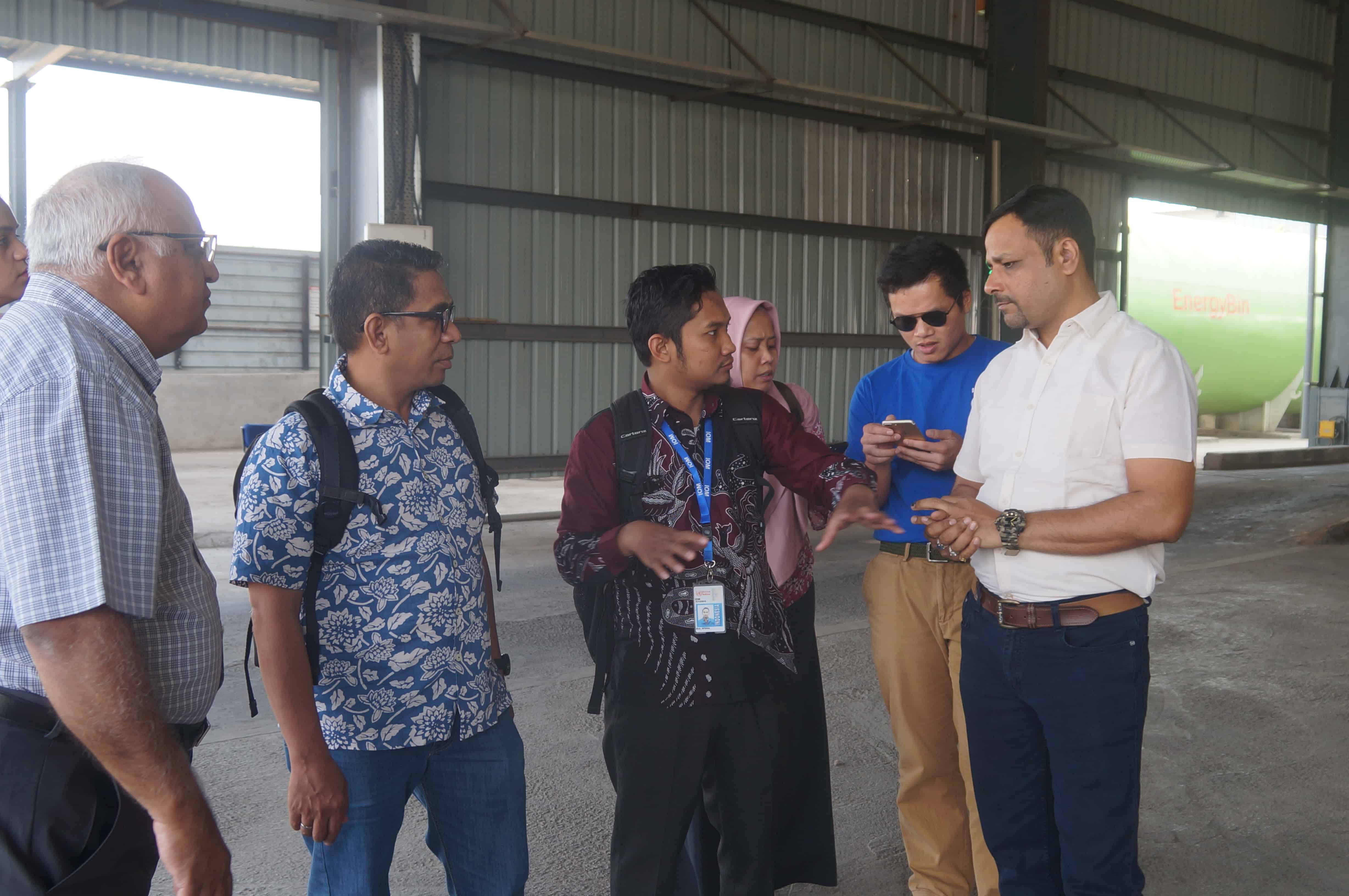Building Healthy Cities Partner Shares How It Became India’s Cleanest City
February 21st, 2019 | viewpoint
Cities across south and southeast Asia struggle with some common challenges: sanitation, waste management, air pollution, and health inequities among them. The USAID-funded Building Healthy Cities project is creating opportunities for three cities—Indore, India, Makassar, Indonesia, and Da Nang, Viet Nam—to share what they do and to learn from each other in their quests to improve the health and wellbeing of their citizens.

Recently city planners and others from Makassar traveled to Indore, the largest city in India’s Madhya Pradesh province, where they were impressed by the city’s progress, and they left eager to host a reciprocal visit to show off their progress, as well.
What impressed them the most? Indore’s clean streets! It was not long ago that Indore was filled with excessive smog and pollution from vehicle exhaust and plastic burning as a form of waste management. Facing pressure from India’s Pollution Control Board to address air quality and waste management practices, the Indore Municipal Corporation (IMC) launched an expansive revitalization of its waste management system. By the end of 2017, not only had the city completely overhauled its approach to waste management, but it has also been recognized as India’s cleanest city for two consecutive years. A key factor in its success has been support from the Indore Smart City Development Office (ISCDL).
First Stop Indore
Representatives from Makassar’s City Planning and Development Agency, Health Department, and Communications and Informatics Department came to Indore to learn from the ISCDL and BHC staff how Indore improved health outcomes across the city. Staff from the International Organization for Migration (IOM), BHC’s partner organization in Makassar, accompanied the travelers.
The tour focused on Indore’s health, environmental, and ICT initiatives. The guests from Makassar visited an Anganwadi center, as these centers play a crucial role in providing childhood immunization, antenatal care for pregnant women, and enhancing referral linkages with other healthcare facilities. They also visited an Urban Primary Health Center to learn how these centers provide healthcare for vulnerable urban communities.

Solid waste management is one of Indore’s most successful environmental interventions and the Makassar team got a chance to witness this firsthand. A dedicated fleet of 500 vehicles works in three shifts throughout the day to collect solid waste from households, commercial establishments, and the night market, which is then brought to one of ten transfer stations across the city. From there, wet waste is transferred to an energy production plant and dry waste is transferred to a composting plant. The team also toured a bio-methanation plant, which produces fuel used for cooking, and even powers most of the waste collection vehicles.
The final day of the study tour was devoted to learning about Indore’s expanding integration of information and communications technology (ICT) with public services. ISCDL has made great strides in streamlining ICT with solid waste management, a robust citizen reporting system, and a traffic management system. The team observed the live monitoring of the waste collection vehicles and learned how the system tracks individual vehicles as they travel throughout the city, and how delays and breakdowns are managed in real time. They also observed how the complaints made via the popular 311 Citizen Reporting System are tracked and monitored.
The effectiveness of the Indore municipality’s strategies, cleanliness of the city, and the citizen engagement inspired the guests from Makassar. “Most impressive is just how clean the city is,” says Mr. Son Ha, Program Coordinator, IOM. “I run and walk in the morning and evening I feel good afterward. If I compare it with the other cities in India, the people here are also very concerned about the cleanliness and they help in maintaining it.” Likewise, the guests from Makassar were able to see the challenges that Indore faces, along with some of the successful solutions Indore has implemented and were excited to bring back some of these innovations to Makassar. “We can implement what would be good for Makassar,” says Mr. Yamlikh Azikin, from the Makassar Communication and Informatics Department.
The Makassar team left Indore feeling excited to show off their own innovations in health and ICT, when they host the ISCDL and Smart City officials from Da Nang in spring 2019. Through study tours and other kinds of exchange, Building Healthy Cities is supporting the relationships between these three cities to blossom into collaborative learning, problem-solving, and friendship… or perhaps even friendly rivalry. Indore intends to claim the crown of Cleanest City in India for the third year in a row. What are going to be the claims to fame that Makassar and Da Nang will share? Stay tuned!
News of the study tour was picked up by the local press and was featured on Zee TV on January 26, 2019.
Written by Daniel Peniston
We strive to build lasting relationships to produce better health outcomes for all.